Victory attained by violence is tantamount to a defeat, for it is momentary
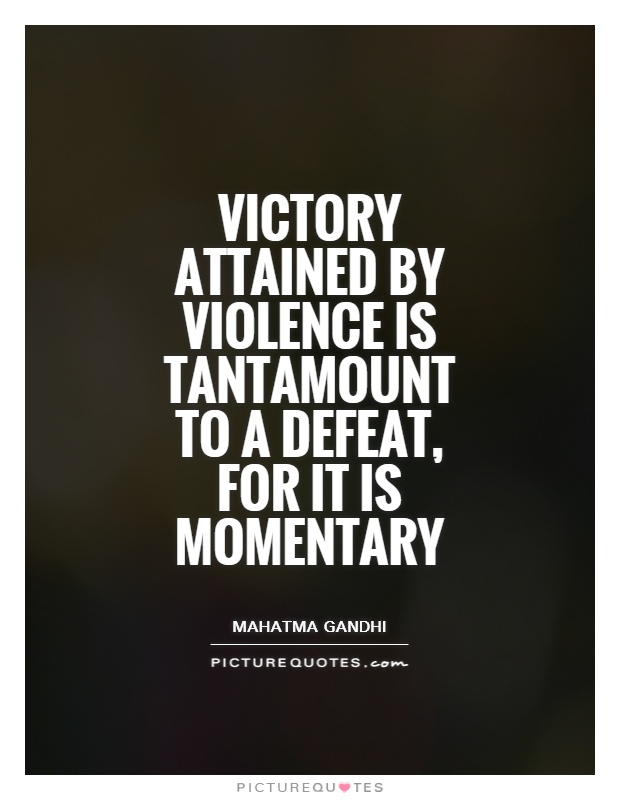
Victory attained by violence is tantamount to a defeat, for it is momentary
Mahatma Gandhi, the revered leader of the Indian independence movement, was a staunch advocate for nonviolent resistance and civil disobedience. He firmly believed that victory attained through violence was not true victory at all, but rather a temporary and hollow triumph. Gandhi's philosophy of nonviolence, known as ahimsa, was deeply rooted in his spiritual beliefs and his commitment to truth and justice.Gandhi's approach to achieving social and political change was based on the principle of nonviolent resistance, which he believed was the most effective and sustainable way to bring about lasting transformation. He famously said, "Victory attained by violence is tantamount to a defeat, for it is momentary." This statement encapsulates Gandhi's belief that violence only begets more violence, leading to a never-ending cycle of conflict and suffering.
Throughout his life, Gandhi demonstrated the power of nonviolent resistance in the face of oppression and injustice. He led numerous campaigns of civil disobedience, including the famous Salt March in 1930, where he and his followers peacefully protested British colonial rule by marching to the sea to make their own salt in defiance of the salt tax. Despite facing brutal repression from the British authorities, Gandhi and his followers remained steadfast in their commitment to nonviolence, ultimately achieving their goal of Indian independence in 1947.
Gandhi's philosophy of nonviolence has had a lasting impact on movements for social justice and human rights around the world. His teachings have inspired countless individuals and groups to resist oppression and injustice through peaceful means, leading to positive change in societies across the globe.


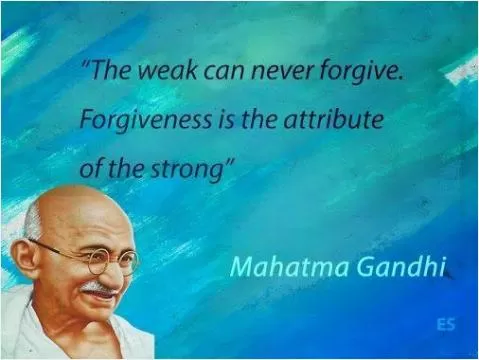

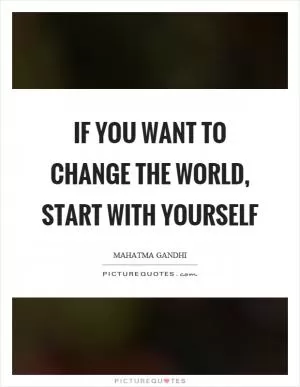
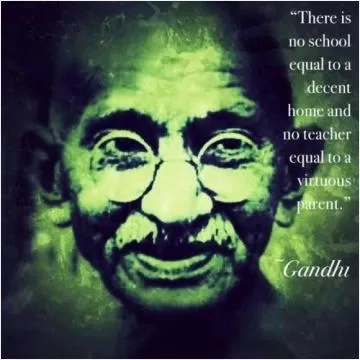



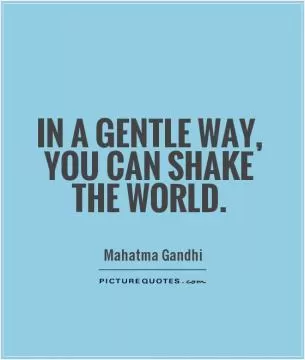
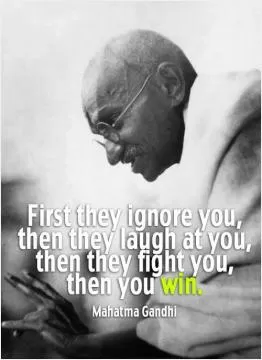

 Friendship Quotes
Friendship Quotes Love Quotes
Love Quotes Life Quotes
Life Quotes Funny Quotes
Funny Quotes Motivational Quotes
Motivational Quotes Inspirational Quotes
Inspirational Quotes